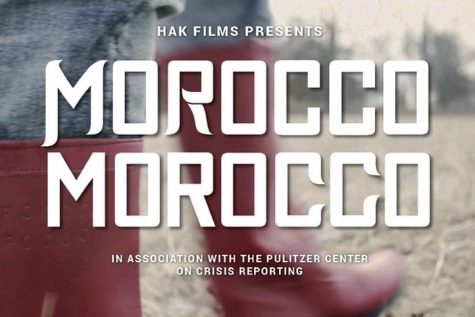The making of ‘Morocco, Morocco’: A conversation with Jackie Spinner
May 4, 2022

Premiering on Chicago’s PBS station WTTW on Thursday, the short documentary “Morocco, Morocco” is set to examine how Morocco, Indiana, first came to be named. Drawing on interviews with locals, the film reveals the relationship this small town has with the Muslim country of Morocco on the North Coast of Africa.
Jackie Spinner, the film’s director and associate professor in the Communication Department, later came to discover that the two places share a surprising number of similarities despite being thousands of miles apart.
Spinner and her sons were returning to Chicago from vacation when they spotted the town of Morocco, Indiana, on a map. She decided to make a quick stop at the town early one morning. Watching her Moroccan-born sons play, her oldest son turned to her and said, “This doesn’t look like Morocco.” Spinner said she was struck by this comment and decided to make “Morocco, Morocco,” which travels back to North Africa to introduce viewers to the cultural connection to Morocco, Indiana.
The Chronicle caught up with Spinner to chat about her latest film.
The Chronicle: As a multimedia journalist, what drew you to telling this story through film as opposed to other mediums?
In part because I knew [film] would be more accessible to audiences in both the U.S. and in Morocco, Africa. It’s easier to present the story visually when you don’t have language issues. … The film is subtitled and translated in Arabic and English, but I thought it was a story that needed to be told visually. That doesn’t mean that I couldn’t tell it through a written story.
How did you balance being a professor, making a film, and taking care of your children as a single mother?
It’s challenging being a working parent in general, and it was particularly hard during the pandemic. It’s very difficult to have work and life balance. Like any academic parent, I rely on the support of my institution, which has become harder at Columbia because of the new policy regarding children on campus. One of the things that the pandemic certainly showed is just how inequitable working mothers in general are treated in the workplace. … During the pandemic, for me, as a single parent by choice, … it was extraordinarily challenging.
How did you gain the trust of the people who appear in the film? How did they feel comfortable telling their story?
First of all, this is a film about a small town in middle America. Most of us who worked on the film are from similar small towns in middle America, and so we went in with the understanding that we were not there to make fun of them or to somehow portray the stereotype of what it’s like to be a small town or to live in a small town. We spoke the same language as the people who lived in the town. I also had a largely veteran crew, and Morocco, Indiana, is a town with deep ties to the veteran community.
In the film, you feature fourth grade students at Morocco Elementary in Indiana drawing what they think the other Morocco looks like and vice versa. Why this approach?
I was actually talking to a friend of mine, who was an art therapist. She asked me if I had thought about incorporating art and drawings in any way. I hadn’t thought about that, and so the idea came from her initially with just using art. Children certainly express themselves through art. To me, it’s one of the most endearing parts in the film because both sets of Moroccans have heard about the other — mostly through media, through television and film — and so they don’t always have the exact right ideas, but they’re curious about each other, and that’s the connection to humanity. It’s wanting to understand people who live differently than we do, and so the children were able to provide that perspective in a very genuine way.
Would you say that film is your main platform now?
I am still learning to be a filmmaker, but I think I told a pretty good story through film. One of the things that I’ve always done in journalism, whether learning a new platform or a new kind of reporting, is I watched the people around me. I’ve been very fortunate to have some pretty great mentors in film, including Michael Rabiger, who is the founder of the Documentary Center [and professor emeritus] at Columbia College. … I worked very closely with him on this film. Hakim Belabbes, who’s an adjunct faculty in the Communication Department at Columbia College, is a friend of mine and a mentor. His production company is behind my latest film. I sought the counsel of people in film I admire, and I watched their films and tried to learn from them. … However, regardless of the platform that I’m on, for me, it’s about telling the story and telling it fairly and objectively.
“Morocco, Morocco” will premiere on WTTW Thursday at 10 p.m. in Chicago. For more information visit the film’s website at www.moroccomoroccodoc.com.







